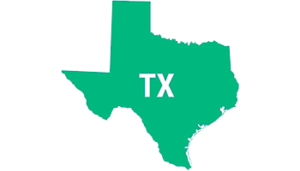Original article published by OSHA
US Department of Labor finds Texas construction company willfully exposed
workers to deadly hazards after trench collapse kills two workers
WBW Construction LLC allowed workers into 23-foot deep, unprotected trench
 AUSTIN, TX – A federal investigation has determined that by failing to follow required workplace safety standards, a Georgetown construction contractor gave two workers installing sewer lines in an underground trench – more than two stories deep – little chance of survival when a large section of the excavation collapsed, crushing them under thousands of pounds of soil and rocks.
AUSTIN, TX – A federal investigation has determined that by failing to follow required workplace safety standards, a Georgetown construction contractor gave two workers installing sewer lines in an underground trench – more than two stories deep – little chance of survival when a large section of the excavation collapsed, crushing them under thousands of pounds of soil and rocks.
U.S. Department of Labor Occupational Safety and Health Administration investigators responding to the residential construction site in Jarrell on June 28, 2022, found WBW Construction LLC willfully violated federal law when they failed to have a trench protective system in place and did not provide an exit point within 25 feet inside a trench. OSHA also issued four serious citations for not using ladders as designed; failing to inspect the work site as frequently as required; not removing water in the trench; and failing to provide workers with first aid training.
OSHA has proposed penalties of $250,272 and placed WBW Construction LLC in the agency’s Severe Violator Enforcement Program.
“WBW Construction LLC willfully sent these workers into an unprotected trench and ignored federal safety requirements. Now, two workers’ families, friends and co-workers are left to grieve their tragic, and avoidable, deaths,” said OSHA Area Director Casey Perkins in Austin, Texas. “Incidents like this can be prevented by following proven and well-known methods to protect workers from the deadly hazards in trenching and excavation work.”
By most estimates, one cubic yard of soil can weigh as much as 3,000 pounds – about the weight of a subcompact car – and trench collapses happen in seconds, which helps explain why they are among the construction industry’s most fatal hazards.
Through the end of November 2022, OSHA reports 35 workers died in trenching and excavation work, more than double the number in all of 2021. The Bureau of Labor Statistics also reports trench collapses claimed the lives of 166 workers between 2011 and 2018.
“Unfortunately, we are seeing a sudden increase in the number of workers dying in trench and excavation collapses,” Perkins explained. “OSHA has a National Emphasis Program in place to alert employers and workers of the dangers, and to hold violators accountable. We also encourage anyone who sees workers in an unsafe trench to help us save lives by reporting the hazardous situation.”
Federal trenching safety standards require protective systems for trenches deeper than 5 feet, and that soil and other materials be kept at least 2 feet from the trench’s edge. Trenches must also be inspected by a knowledgeable person, be free of standing water and atmospheric hazards, and have a safe means of entry and exit before a worker may enter.
Based in Georgetown, WBW Construction LLC is affiliated with the WBW Development Group, developer of more than two dozen residential and commercial projects in Texas.
The deceased workers were provided by Sedona Staffing Services, a Moline, Illinois-based company that offers temporary staffing for clerical, industrial and technical positions at 28 branches nationwide. OSHA issued one serious citation to Sedona for not inspecting the job sites. Proposed penalties total $9,324 for Sedona.
WBW Construction LLC and Sedona Staffing Services have 15 business days from receipt of citation and penalties to comply, request an informal conference with OSHA’s area director, or contest the findings before the independent Occupational Safety and Health Review Commission.
OSHA’s trenching and excavation webpage provides additional information on trenching hazards and solutions, including a safety video.
McCraren Compliance offers many opportunities in safety training to help circumvent accidents. Please take a moment to visit our calendar of classes to see what we can do to help your safety measures from training to consulting.


